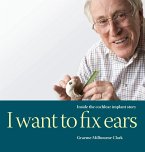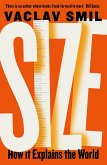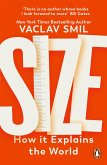Susan Strasser's pathbreaking histories of housework and the rise of the mass market have become classics in the literature of consumer culture. Waste and Want, now in paperback, examines an essential but neglected part of that culture -- the trash it produces -- and finds in it an unexpected wealth of meaning. Before the twentieth century, trash was nearly nonexistent. Strasser paints a vivid picture of an America where everything possible was reused: scavenger pigs roamed the streets, "swill children" collected kitchen garbage, and peddlers traded manufactured goods for rags and bones. Over the last hundred years, however, Americans have become hooked on disposability, fashion, and constant technological change, and the rise of mass consumption has led to waste on a previously unimaginable scale. Waste and Want recaptures a hidden part of our social history, vividly illustrating that what we throw away defines us as much as what we keep.
An unprecedented look at that most commonplace act of everyday life-throwing things out-and how it has transformed American society. Susan Strasser's pathbreaking histories of housework and the rise of the mass market have become classics in the literature of consumer culture. Here she turns to an essential but neglected part of that culture-the trash it produces-and finds in it an unexpected wealth of meaning. Before the twentieth century, streets and bodies stank, but trash was nearly nonexistent. With goods and money scarce, almost everything was reused. Strasser paints a vivid picture of an America where scavenger pigs roamed the streets, swill children collected kitchen garbage, and itinerant peddlers traded manufactured goods for rags and bones. Over the last hundred years, however, Americans have become hooked on convenience, disposability, fashion, and constant technological change-the rise of mass consumption has led to waste on a previously unimaginable scale. Lively and colorful, Waste and Want recaptures a hidden part of our social history, vividly illustrating that what counts as trash depends on who's counting, and that what we throw away defines us as much as what we keep.
Hinweis: Dieser Artikel kann nur an eine deutsche Lieferadresse ausgeliefert werden.
An unprecedented look at that most commonplace act of everyday life-throwing things out-and how it has transformed American society. Susan Strasser's pathbreaking histories of housework and the rise of the mass market have become classics in the literature of consumer culture. Here she turns to an essential but neglected part of that culture-the trash it produces-and finds in it an unexpected wealth of meaning. Before the twentieth century, streets and bodies stank, but trash was nearly nonexistent. With goods and money scarce, almost everything was reused. Strasser paints a vivid picture of an America where scavenger pigs roamed the streets, swill children collected kitchen garbage, and itinerant peddlers traded manufactured goods for rags and bones. Over the last hundred years, however, Americans have become hooked on convenience, disposability, fashion, and constant technological change-the rise of mass consumption has led to waste on a previously unimaginable scale. Lively and colorful, Waste and Want recaptures a hidden part of our social history, vividly illustrating that what counts as trash depends on who's counting, and that what we throw away defines us as much as what we keep.
Hinweis: Dieser Artikel kann nur an eine deutsche Lieferadresse ausgeliefert werden.








